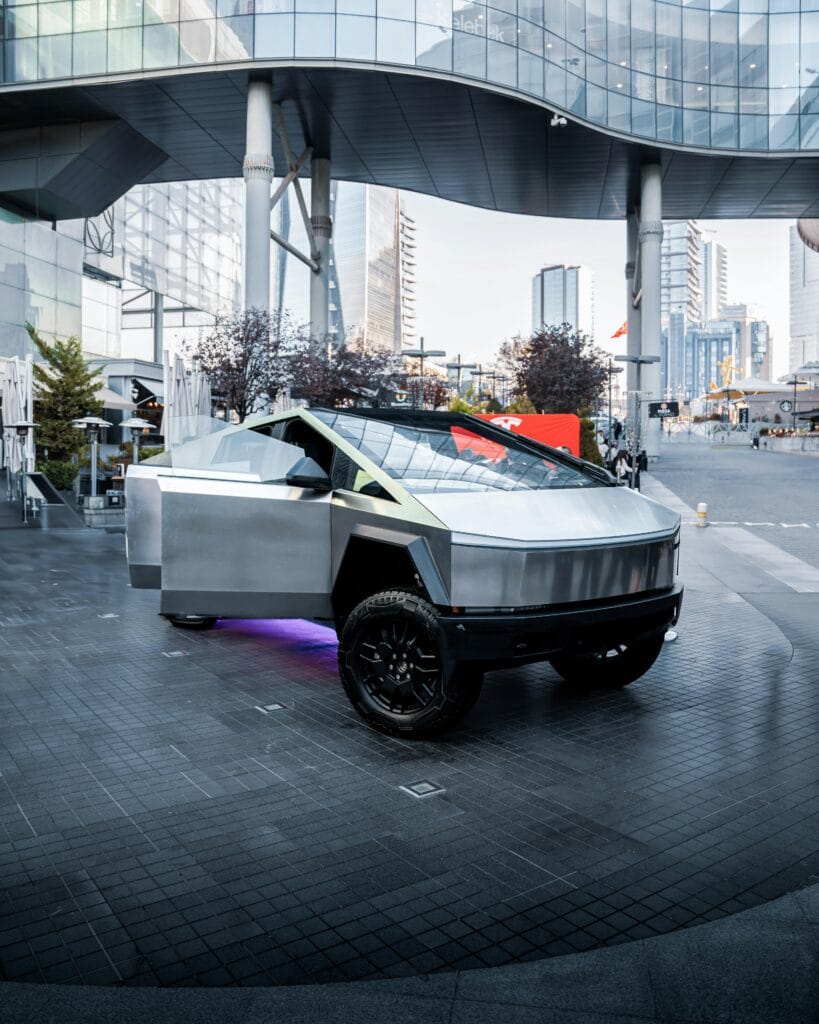2025 has been a landmark year for technological and scientific innovation. From AI-driven healthcare to revolutionary space exploration, this year has seen breakthroughs that are reshaping industries and improving lives. In this article, we’ll dive into the most exciting innovation stories of 2025, detailing how these advancements are changing the world.

1. AI-Powered Personalized Medicine Goes Mainstream
One of the biggest stories of 2025 is the widespread adoption of AI-driven personalized medicine. Companies like DeepMind Health and IBM Watson Health have rolled out AI systems that analyze genetic data, lifestyle factors, and real-time health monitoring to provide tailored treatment plans for patients.
- Cancer Treatment Revolution: AI algorithms now predict the most effective chemotherapy combinations for individual patients, improving recovery rates by 40% in clinical trials.
- Wearable Health Monitors: Next-gen smartwatches and biosensors detect early signs of diseases like diabetes and Parkinson’s, alerting users before symptoms appear.
- Drug Discovery Acceleration: AI has cut drug development time in half, with OpenAI’s PharmaGPT assisting in designing new molecules for rare diseases.
2. Quantum Computing Breaks New Barriers
2025 has been a breakthrough year for quantum computing, with tech giants and startups achieving unprecedented milestones.
- Google’s 1,000-Qubit Processor: Google Quantum AI unveiled a 1,000-qubit quantum processor, solving complex optimization problems in seconds that would take classical supercomputers years.
- First Commercial Quantum Cloud: IBM and Amazon now offer quantum cloud services, allowing businesses to run quantum simulations for logistics, finance, and cryptography.
- Post-Quantum Cryptography: With quantum computers threatening current encryption, NIST’s new quantum-resistant algorithms have been adopted by governments and banks worldwide.
3. The Rise of Autonomous Electric Air Taxis
Flying cars are no longer science fiction—2025 is the year urban air mobility takes off.
- Joby Aviation & Archer Aviation: These companies launched the first FAA-approved electric air taxi services in cities like Miami, Dubai, and Tokyo, reducing commute times by 70%.
- Volocopter’s Autonomous Fleet: Germany’s Volocopter deployed fully autonomous eVTOLs (electric vertical takeoff and landing vehicles) for short-distance urban travel.
- Battery Innovations: Solid-state batteries now power these air taxis, offering 500-mile ranges on a single charge.
4. Neuralink and Brain-Computer Interfaces (BCIs) Go Public
Elon Musk’s Neuralink made headlines in 2025 with its first FDA-approved consumer BCI implant.
- Medical Breakthroughs: Paralysis patients can now control robotic limbs and computers using only their thoughts.
- Cognitive Enhancements: Early adopters report enhanced memory recall and faster learning speeds due to Neuralink’s AI-assisted neural boosts.
- Ethical Debates: The rise of BCIs has sparked discussions on privacy, hacking risks, and human augmentation ethics.
5. Fusion Energy Achieves Net Gain (Again, But Better)
After decades of research, fusion energy is closer than ever to becoming a viable power source.
- ITER’s Record-Breaking Plasma Confinement: The International Thermonuclear Experimental Reactor (ITER) sustained a fusion reaction for 300 seconds, a major step toward continuous energy production.
- Private Sector Advances: Companies like Helion Energy and Commonwealth Fusion Systems demonstrated small-scale, portable fusion reactors, promising clean energy by 2030.
- Government Backing: The U.S. and EU announced $50 billion in funding to accelerate fusion commercialization.
6. Mars Colonization Prep Begins with Robotic Missions
2025 saw NASA and SpaceX ramp up preparations for human Mars missions.
- SpaceX’s Starship Lands on Mars (Uncrewed): A robotic Starship successfully landed on Mars, testing in-situ resource utilization (ISRU) to produce oxygen and water from Martian soil.
- NASA’s Mars Sample Return Mission: The Perseverance rover collected and launched the first Martian rock samples back to Earth for analysis.
- Lunar Gateway Expansion: The Moon’s Lunar Gateway station was completed, serving as a staging point for future Mars missions.
7. Hyperloop’s First Operational Track Opens
After years of testing, Virgin Hyperloop and HTT (Hyperloop Transportation Technologies) launched the first operational hyperloop route.
- Dubai to Abu Dhabi in 12 Minutes: The 300 mph vacuum-sealed pods cut travel time between the two cities from 90 minutes to just 12.
- Expansion Plans: Routes in Europe (Germany-France) and the U.S. (Texas Triangle) are under construction, with completion expected by 2027.
8. AI-Generated Movies and Deepfake Regulation
Hollywood faced disruption as AI-generated films became indistinguishable from human-made ones.
- OpenAI’s Sora 2.0: This AI video generator produces feature-length films with photorealistic actors and dynamic scripts.
- Deepfake Laws: The U.S. and EU passed strict deepfake regulations, requiring watermarking and consent for AI-generated likenesses.
The year 2025 has been a landmark period for technological innovation, with groundbreaking advancements across multiple industries. From artificial intelligence and space exploration to biotech and clean energy, this year has delivered remarkable progress that is shaping the future. Here are some of the most significant innovation stories of 2025.
1. AI-Powered Creativity Takes Center Stage
Generative AI has moved beyond text and image generation, now influencing music composition, film production, and even scientific research. AI models are collaborating with human creators, producing award-winning films, composing symphonies, and accelerating scientific discoveries at an unprecedented pace.
2. Quantum Computing Achieves Real-World Applications
For years, quantum computing was a theoretical marvel, but in 2025, it has finally begun solving real-world problems. Industries such as pharmaceuticals, logistics, and cybersecurity are leveraging quantum algorithms to optimize drug discovery, supply chains, and encryption methods. Companies like IBM, Google, and emerging startups have pushed the boundaries of quantum advantage.
3. Space Tourism and Lunar Exploration Expand
Space travel is no longer a dream for the elite. With commercial spaceflights becoming more accessible, space tourism has seen record participation. Meanwhile, global space agencies and private companies have successfully established semi-permanent lunar habitats, setting the stage for sustained human presence on the Moon.
4. Breakthroughs in Longevity and Personalized Medicine
Advancements in biotechnology have made significant strides in extending human lifespan. AI-driven drug discovery, gene editing techniques like CRISPR, and personalized medicine are helping combat previously incurable diseases. Scientists have also made progress in regenerative medicine, with lab-grown organs offering new hope for transplant patients.
5. Clean Energy Revolution Accelerates
Amid growing climate concerns, 2025 has seen major breakthroughs in clean energy. Fusion energy experiments have demonstrated sustained power generation, bringing us closer to a future of unlimited, carbon-free energy. Additionally, new battery technologies and next-generation solar panels are making renewable energy more efficient and affordable than ever before.
6. The Rise of Fully Autonomous Vehicles
Autonomous vehicle technology has finally reached mass adoption. Self-driving taxis, delivery drones, and AI-powered freight trucks are now an everyday reality in many cities worldwide. Enhanced safety measures and regulatory advancements have made autonomous transportation more reliable and efficient, reducing traffic congestion and emissions.
7. Smart Cities and AI-Integrated Infrastructure
The concept of smart cities has become more tangible, with AI-driven urban planning optimizing energy use, traffic flow, and public safety. Smart grids, intelligent waste management, and automated emergency response systems are transforming urban living, making cities more sustainable and resilient.
From quantum leaps in computing to AI-driven healthcare, 2025 has proven to be a turning point in human innovation. These advancements aren’t just futuristic concepts—they’re actively transforming industries, economies, and daily life.


